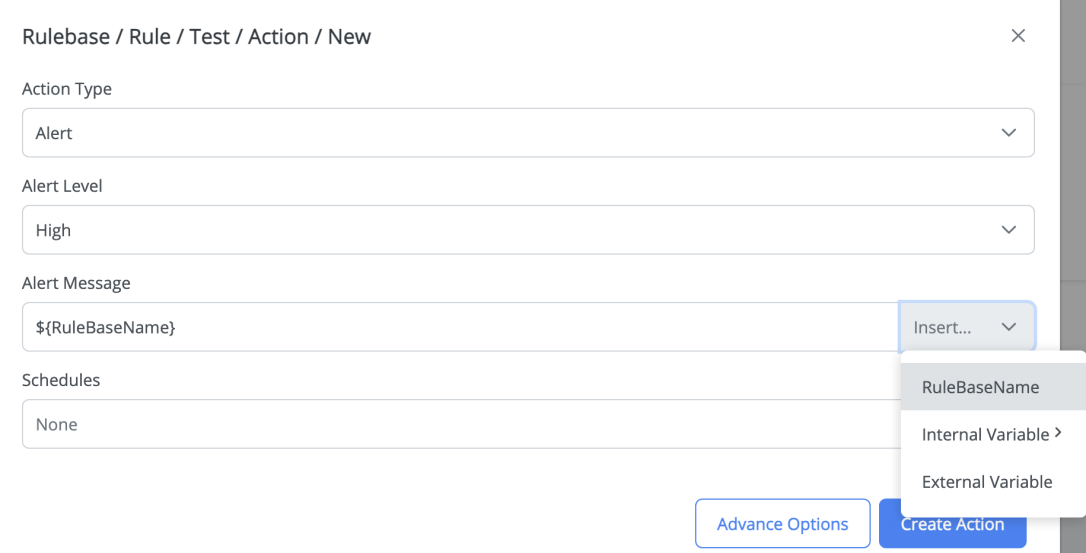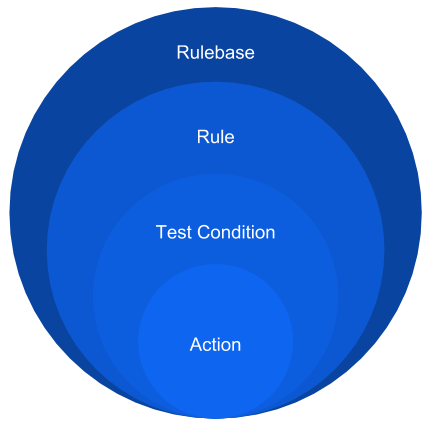Rulebases Tab
The Rulebases tab shows all the rulebases for the agent. You can select the number of rulebases displayed on a page by selecting 5, 10 or 20 from the records per page drop-down menu.
Figure 34: The Rulebases Page for the Hawk Agent

The following information is displayed for each rulebase:
|
•
|
Name - the name of the Rulebase |
|
•
|
State - whether the rulebase is deployed or undeployed |
|
•
|
Rule Count - the number of rules in the Rulebase |
|
•
|
Author - name of person or entity that created the Rulebase |
|
•
|
Description - text used to describe the Rulebase |
|
•
|
Schedule - the name of the schedule that is used by the Rulebase |
|
•
|
Actions - you can take the following actions on the Rulebase: |
|
—
|
deploy or undeploy the rulebase on the agent |
|
—
|
export the rulebase to a .hrb file |
|
—
|
derive a new rulebase based on an existing one |
|
—
|
deploy the rulebase to an agent other than the agent on which the rulebase exists |
|
—
|
undeploy the rulebase from an agent on which it was previously deployed |
Apart from this information, can also perform two more operations on the Rulebases tab:
Rulebase Variables in Alert Messages
You can use rulebase internal variables while defining rulebase alert actions message, along with microagent specific variables in the alert message text. For example, in a rulebase with Self microagent as the data source, you can choose rulebase internal variables such as rulebase name, rule name, test name, and so on. You can also use Self microagent specific variables such as RuleBaseName, Internal Variable, External Variable in your alert message text. For details, see Variables in a Rulebase.
Figure 35: Variables Usage in Alert Messages

Drilling Down Rulebases
In the Rulebase tab, you can drill down the rulebase details to the action level. You can drill down the rulebase details in the following hierarchy:
Figure 36: Drilling Down Rulebases

At each level, you can view the details of that entity and list of its subsequent entities. For example, when you click a rulebase name, the rulebase details are displayed and also the list of rules associated with it is displayed.
Also, at each level, you can perform some actions specific to that level. For example, on the Rulebases tab, click the Add Rulebase to add a new rulebase, when you drill down to the rulebase details page, you can click the Add Rule to add a new rule to the rulebase.


